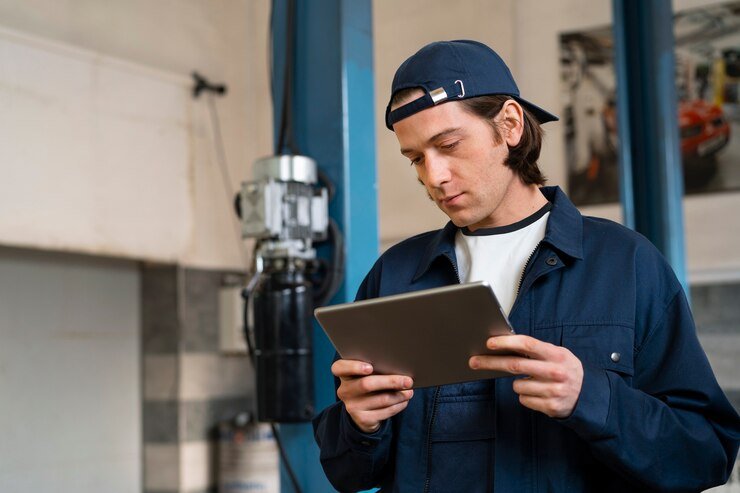Regular inspections of your HVAC system are vital for maintaining efficient performance, ensuring comfort, and extending the system’s lifespan. HVAC systems tirelessly regulate indoor temperatures, maintain air quality, and ensure energy efficiency. Without proper maintenance, they can experience issues that compromise performance and lead to higher energy bills. Regular inspections can identify minor problems before they escalate into costly repairs or breakdowns. We will explore how consistent inspections contribute to your HVAC system’s optimal operation, ensuring a comfortable and cost-effective indoor environment for years.
Preventative Maintenance and Cost Savings
Preventative maintenance is one of the primary benefits of regular HVAC inspections. By scheduling routine checks, homeowners can detect and address issues early, avoiding costly repairs later. Inspectors examine critical components such as filters, coils, and refrigerants to ensure they function properly. If left unchecked, even minor issues like a dirty filter can lead to system inefficiency, increasing energy consumption and utility costs.
Additionally, preventative maintenance can extend the lifespan of your HVAC system. Small issues, such as loose connections or worn-out parts, are identified and resolved before they cause major damage. This proactive approach minimizes the risk of unexpected breakdowns, ensuring your system remains reliable during extreme weather conditions. Over time, the savings on repair costs and energy bills significantly outweigh the expense of regular inspections, making them a wise investment.
Furthermore, routine maintenance ensures your system operates at peak efficiency, which can reduce overall energy consumption. An efficient HVAC system requires less power to maintain the desired temperature, translating to lower energy bills. Regular inspections are not merely a cost but a valuable step toward energy conservation and long-term savings.
Improved Air Quality and Comfort
Regular HVAC inspections are crucial in maintaining indoor air quality and overall comfort. Over time, HVAC systems can accumulate dust, dirt, and debris, which may circulate throughout your home if not properly addressed. Inspections include cleaning and replacing air filters, ensuring your system efficiently removes pollutants from the air. This process reduces allergens, dust mites, and other irritants, promoting a healthier indoor environment for occupants.
Another critical aspect of inspections is ensuring balanced airflow. Air Docs Heating & Cooling technicians assess the system’s ducts and vents to ensure no blockages or leaks. Proper airflow distribution ensures consistent temperatures throughout the home, eliminating hot or cold spots. This uniform comfort is especially important during extreme weather, as it allows the HVAC system to maintain desired temperatures without overexerting itself.
Additionally, regular inspections enable technicians to check the system’s humidity levels. Excess humidity can lead to mold growth and structural issues, while low humidity can cause discomfort and dryness. Inspectors ensure a more comfortable and safer indoor environment by fine-tuning the system to maintain optimal humidity levels.
Enhanced Energy Efficiency and Environmental Benefits
Energy efficiency is a key advantage of regular HVAC inspections. When your system is well-maintained, it operates more efficiently, consuming less energy to achieve the desired temperature. Components such as evaporator coils and fans can become dirty or worn out over time, reducing efficiency and increasing energy consumption. Inspections include cleaning and servicing these components to restore the system’s performance.
An energy-efficient HVAC system reduces your carbon footprint. Lower energy consumption means fewer greenhouse gas emissions, contributing to a more sustainable environment. By committing to regular inspections, homeowners support global efforts to combat climate change while enjoying reduced energy bills.
Moreover, regular inspections help identify outdated or malfunctioning components that may compromise efficiency. Replacing these parts with newer, more energy-efficient alternatives ensures your system meets modern energy standards. This proactive approach enhances efficiency and complies with regulations designed to reduce environmental impact.
Prolonged System Lifespan and Reliability
Another significant benefit of regular inspections is extending the lifespan of your HVAC system. HVAC systems represent a substantial investment, and ensuring their longevity maximizes the value of your purchase. Inspections prevent minor issues from escalating into major malfunctions, reducing the likelihood of premature system failure.
A well-maintained HVAC system is also more reliable, providing consistent performance when needed. During extreme weather conditions, such as scorching summers or freezing winters, your system is under increased stress. Regular inspections ensure all components function optimally, minimizing the risk of breakdowns during critical periods.
Furthermore, maintaining your HVAC system reduces the frequency of replacements, saving you money in the long run. A neglected system may require replacement every 10 years, whereas a well-maintained system can last 15 to 20 years. Regular inspections are key to achieving this extended lifespan, ensuring your HVAC system remains a dependable part of your home.
Regular inspections by your HVAC company are essential to maintaining optimal performance, improving energy efficiency, and ensuring a comfortable indoor environment. They prevent costly repairs, improve air quality, and prolong the lifespan of your system. Routine maintenance benefits homeowners financially and contributes to a healthier, more sustainable future. By prioritizing regular inspections, you protect your investment, enjoy consistent comfort, and contribute to a greener planet for future generations.
